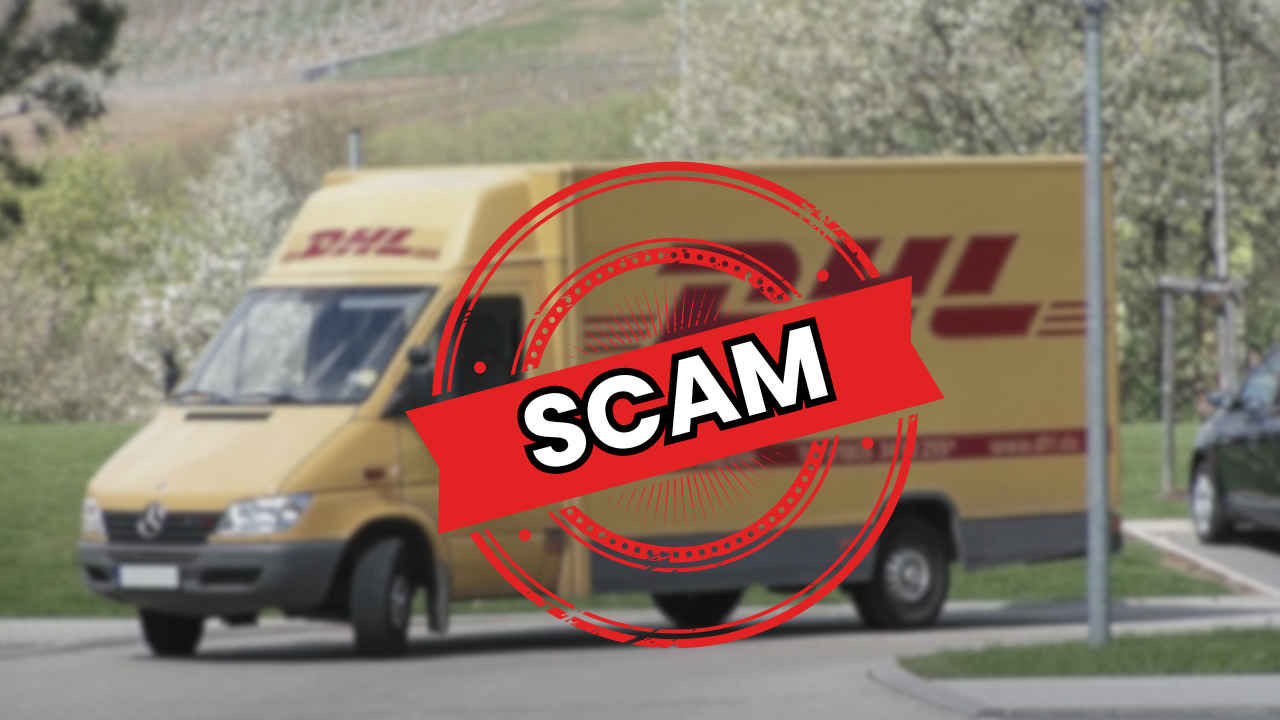DHL QR code scam: How scammers are tricking people with fake delivery notices
The scam begins when individuals receive a fake delivery notice, often claiming to be from DHL.
The notice includes a QR code and a message suggesting that the recipient can “re-arrange delivery in 3 simple steps.”
When the QR code is scanned, it directs the victim to a fraudulent website where they are asked to enter personal information, such as a Waybill number.

India’s growing use of online payments and digital transactions has unfortunately led to an increase in cybercrimes. One of the latest scams making the rounds is a QR code scam disguised as a DHL delivery notice. People are reporting that they’ve received suspicious delivery notices at their doorsteps, urging them to scan a QR code for package delivery. While some notices are legitimate, experts warn that fake messages related to DHL deliveries are becoming more common, putting people at risk of financial loss.
 Survey
SurveyWhat is the DHL QR code scam?
The scam begins when individuals receive a fake delivery notice, often claiming to be from DHL. The notice includes a QR code and a message suggesting that the recipient can “re-arrange delivery in 3 simple steps.” When the QR code is scanned, it directs the victim to a fraudulent website where they are asked to enter personal information, such as a Waybill number, to confirm delivery options. The website may look convincing, but it is designed to steal sensitive details.
In addition to these paper notices, the scammers also send SMS messages. One such text reads: “Your package is currently processing at our facility. Visit http://dhlhub.com for updates on import charges.” While the link appears similar to the official DHL website, it is a fake URL meant to trick users into clicking, which could lead to malware installation or the theft of personal data.
Also read: Mangaluru man loses Rs 42.4 lakh after scammer asked him to create a Telegram account
What DHL has to say
DHL has confirmed that the paper notices, often labeled “Not Home (NH)” cards, are legitimate and issued by DHL Express Singapore. However, the company has warned that scammers are misusing its brand to deceive people. DHL encourages users to stay cautious and avoid falling for fraudulent communications.
Also read: Hyderabad housewife loses Rs 4.5 lakh in task completion scam: Here’s what happened
How to protect yourself
Cybersecurity experts highlight that QR codes are the latest tool being used by scammers to trick people. To avoid falling victim to these scams, here are some tips:
- Always check URLs carefully. Look for the official domain “dhl.com” and avoid suspicious links.
- Never scan QR codes from unknown or untrusted sources.
- If you receive a questionable delivery notice or message, report it directly to DHL’s official customer service.
Ayushi Jain
Ayushi works as Chief Copy Editor at Digit, covering everything from breaking tech news to in-depth smartphone reviews. Prior to Digit, she was part of the editorial team at IANS. View Full Profile